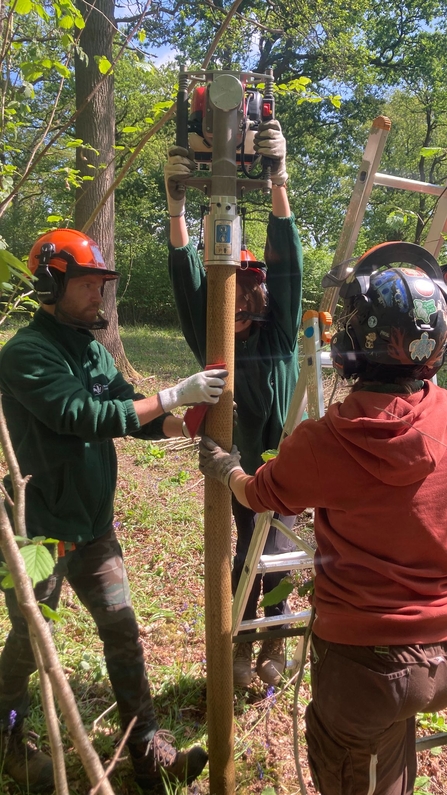My name is Joe, I'm one of the five new trainees that joined Worcestershire Wildlife Trust in April this year. Over the next 12 months, I'll be learning all of the essential skills and theory that goes into managing the wildlife reserves that WWT cares for.
It was last May that, after nearly a decade of dissatisfaction, stress and sometimes tears working in NHS management, I finally decided that I needed to change career. I had no clear plan for what I would be doing next, except that a) sustainability and conservation is really important to me, b) I want to do practical work and c) I would avoid ever having to go into an office again, if possible.



